| IN A NUTSHELL |
|
The recent escalation in the Middle East has captured global attention as Israel launched a significant airstrike on Iran’s nuclear and military facilities. This operation, involving over 200 Israeli fighter jets, targeted more than 100 sites across Iran, marking a critical moment in the ongoing tensions between the two nations. The strikes occurred amidst renewed nuclear talks between the United States and Iran, adding to the already complex geopolitical landscape. As the international community watches closely, the implications of these strikes could have far-reaching consequences for regional stability and global diplomacy.
Israel Attacks Nuclear and Military Sites in Iran
In a bold military maneuver, Israeli fighter jets executed a series of attacks on key Iranian locations, including the Natanz nuclear site. While Iran’s authorities, as reported by Al Jazeera, have stated there was no increase in radiation levels at the Natanz facility, the strike’s impact is profound. Notably, the Bushehr nuclear power plant was not targeted during this operation. Israel’s intent was clear: to hit the core of Iran’s nuclear ambitions. Reports from Iranian state media have confirmed the death of Hossein Salami, the chief of the Islamic Revolutionary Guards, alongside six nuclear scientists.
The Israeli Defense Forces (IDF) have claimed that their operation resulted in the deaths of several key Iranian military leaders, including the Chief of Staff of the Iranian Armed Forces. This bold move by Israel underscores their concerns about Iran’s nuclear capabilities, particularly the production of enriched uranium, which they believe could lead to the development of nuclear weapons. The situation remains tense, with the potential for further escalations.
Global Reactions and Iran’s Response
Following the Israeli strikes, Iran’s reaction was swift. According to the BBC, Iran launched 100 drones in retaliation, signaling the seriousness of the conflict. In response, Israel declared a state of emergency. Ayatollah Ali Khamenei, Iran’s Supreme Leader, has issued a stern warning of ‘severe punishment,’ indicating that this confrontation is far from over. The potential for a retaliatory strike on Israeli facilities remains a real concern, as tensions continue to rise.
The international community is closely monitoring the situation. The U.S., under President Donald Trump, has distanced itself from the conflict, emphasizing the protection of American forces in the region. Meanwhile, UK Prime Minister Keir Stammer has called for calm and urged all parties to de-escalate. This geopolitical chess game continues to unfold, with the potential for significant implications on regional and global stability.
The Context of US-Iran Nuclear Talks
The airstrikes took place during a critical time in the US-Iran nuclear negotiations. The sixth round of talks was scheduled to occur in Muscat, Oman, just days after the military operation. These negotiations aim to address Iran’s nuclear program and its compliance with international agreements. The International Atomic Energy Agency (IAEA) has previously reported that Iran has not met its non-proliferation obligations, a point of contention for many Western nations.
The IAEA’s concerns revolve around Iran’s undeclared nuclear materials and its stockpile of enriched uranium, which poses a potential threat if used for weaponization. The recent strikes by Israel, therefore, are not only a military action but also a statement of concern regarding Iran’s nuclear intentions. As the world awaits the outcome of these talks, the stakes have never been higher for diplomatic resolutions to prevent further conflict.
Potential Implications for Middle East Stability
As tensions escalate between Iran and Israel, the broader implications for the Middle East’s stability cannot be ignored. These recent developments could potentially disrupt the delicate balance of power in the region. The involvement of major powers like the United States and the United Kingdom adds another layer of complexity to the situation. While efforts for peace and stability continue, the risk of further military engagements looms large.
The potential for an all-out conflict poses a threat not only to the involved nations but also to global security. The international community’s role in mediating tensions and encouraging dialogue is crucial at this juncture. As the situation unfolds, the world watches with bated breath, hoping for a peaceful resolution that can prevent further escalation and ensure regional stability.
The unfolding events in the Middle East underscore the intricate web of geopolitical relationships and the urgent need for effective diplomacy. As Israel and Iran navigate this turbulent period, the international community’s involvement becomes increasingly critical. What measures can global leaders take to ensure that this conflict does not spiral into a more extensive regional war?
Did you like it? 4.4/5 (25)

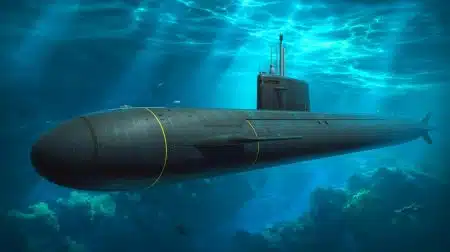
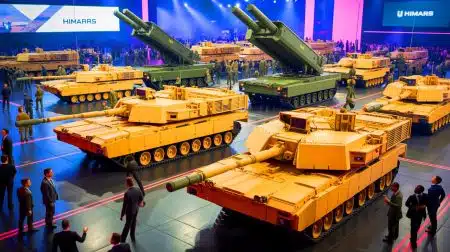

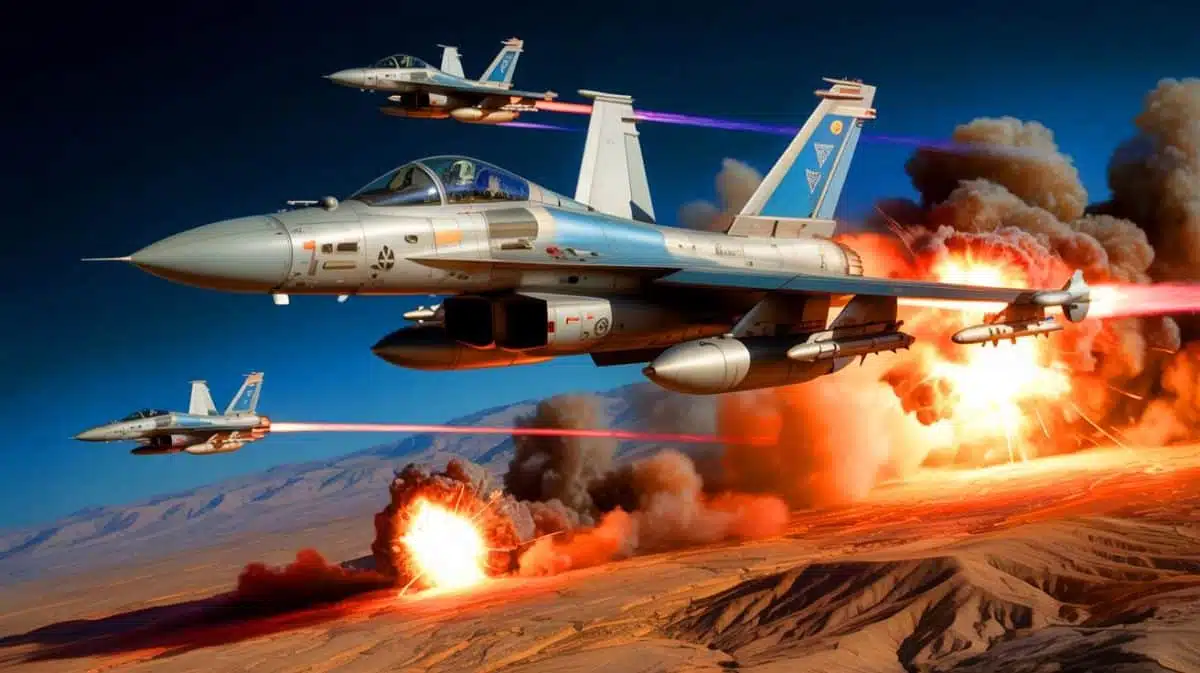
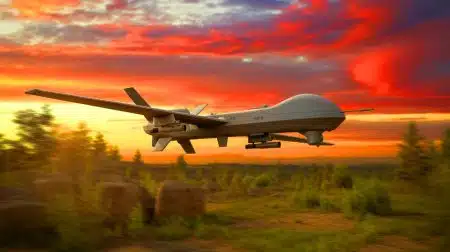
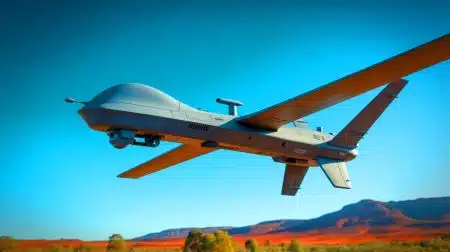
Wow! 200 jets? Is that even possible? 😲
This is getting serious. What are the implications for the rest of the Middle East?
Great article, but I wish there were more details on the aftermath.
Does anyone else think this is escalating way too fast? 😬
So, Trump is distancing the U.S. from the conflict. Smart move or cowardly?
The international community better step up before things get out of hand.